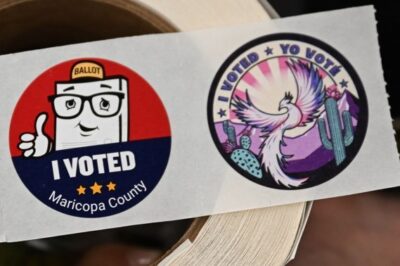ACLU, Partners Urge Supreme Court to Uphold Puerto Rican Residents’ Constitutional Rights
WASHINGTON — The American Civil Liberties Union, the ACLU of Puerto Rico, Demos, Equally American, and the Washington Lawyers’ Committee for Civil Rights and Urban Affairs filed an amicus brief with the U.S. Supreme Court today urging the court to uphold that residents of Puerto Rico, and residents of all federal U.S. territories, are entitled to equal protection under the U.S. Constitution.
The case, United States of America v. Vaello-Madero, concerns the Supplemental Security Income (SSI) program, which offers benefits to seniors, blind or visually impaired people, and people with disabilities who are residents of the 50 U.S. states and the District of Columbia. Congress, however, has declined to extend the SSI benefits to Puerto Rico residents despite the fact that residents of Puerto Rico, like those of Guam, American Samoa, and the U.S. Virgin Islands, are entitled to equal protection of the laws of the United States. The issue before the Supreme Court is whether Congress violates Puerto Rico residents’ equal protection rights by categorically excluding them from SSI benefits simply because they live in Puerto Rico.
The groups’ amicus brief argues that Puerto Rico residents should be entitled to enjoy the full protections of the U.S. Constitution, and that by denying SSI benefits to residents of the territories, Congress disfavors a group that lacks voting representation in Congress, has historically faced marginalization and disenfranchisement, and overwhelmingly consists of people of color — leaving this group without equal protection under the law.
“Puerto Rico residents are entitled to equal protection under the U.S. Constitution, but by excluding them from this program, Congress unconstitutionally discriminates against them,” said Adriel I. Cepeda Derieux, senior staff attorney with the ACLU Voting Rights Project. “Everyone in the U.S. and the territories should have the same access to the benefits they're entitled to. Puerto Rico residents, who are disproportionately people of color, cannot vote to remedy their arbitrary and flawed exclusion from this law, and this unequal treatment must end.”
The respondent in this case, Mr. Vaello-Madero, received SSI benefits while he lived in New York and continued to receive them by direct deposit to his bank account upon moving to Puerto Rico in 2013. In 2016, when the U.S. Social Security Administration (SSA) learned of his change in residence, it sued to recover $28,000 in benefits that Mr. Madero had received since leaving New York. Mr. Vaello-Madero won summary judgment on an equal protection challenge against the SSA’s collection action, which the First Circuit affirmed. The First Circuit held that the government couldn’t justify denying SSI benefits to Puerto Rico residents on grounds that they don’t pay federal income tax because SSI funds are disbursed from the general federal treasury, to which Puerto Rico annually contributes billions.
The groups support the lower court’s analysis and contend the Constitution’s protection of individual rights and limitations on government should apply fully to all federal territories, including Puerto Rico.
Below are additional comments from:
William Ramirez, executive director of the ACLU of Puerto Rico:“The United States Government cannot deprive the people of the federal territories of their equal constitutional protections, civil rights, and liberties just because of their territorial status.”
Joanna Wasik, supervisory counsel for the Washington Lawyers’ Committee: “This is yet another example of the racialized treatment of the residents of Puerto Rico and their treatment under federal law as second class citizens. There is, and can be no basis for this discrimination.”
Neil Weare, president of Equally American: “Denying some of the most vulnerable citizens critical federal benefits based solely on where they happen to live isn’t just wrong, it’s unconstitutional. No other American community would accept this kind of discrimination, and residents of the territories shouldn’t have to either.”



